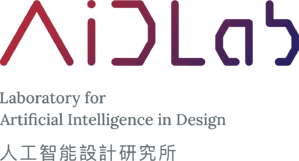Project Highlights
A Cyber System for Sustainable Design
While new technologies such as AI, automation and IoTs will play key roles in the future development, Dr Carman Lee believes that integrating AI into product design would empower enterprises to build a sustainable future.
In order to move towards to a sustainable future, organisations need to raise awareness of issues related to sustainability and eco-innovation since there is clearly an intention-behaviour gap between high levels of public support for sustainability and non-engagement in acts that aid sustainability. While new technologies such as AI, automation and IoTs will play key roles in the future development, Dr Carman Lee believes that integrating AI into product design would empower enterprises to build a sustainable future and help them to achieve a circular supply chain - reusable parts or components could be detached from the original product, returned to the production process, tested and reassembled in new products.
In her research project “A Cyber System for Sustainable Design by Using Evolutionary Algorithms for Eco-innovation”, Dr Lee aims to develop a cyber physical system with evolutionary algorithms to generate good design ideas in eco-innovation that protect the environment more efficiently and practically than is presently the case. The team plans to infuse AI into TRIZ, a popular systematic approach for understanding and defining challenging problems that require an inventive solution, and its 40 inventive principles (IPs) have been used as a tool to identify and solve contradictions when creating or redesign product or service.
When it comes to product design, a number of factors come into play, each of which carries a different weighting, some factors contradict other factors, and this is where AI can play a role. In AI you can pick many parameters and throw them into the mix and have it work out the best combination of product features by using an algorithm. The team will first try to apply AI for incremental innovation that focuses on a series of small feature improvements or modular change to existing products or services, and if the result is positive, it could be extended into disruptive innovation.
Recently, a research study related to sustainable new product development portfolio formulation and selection has been started. To enhance the likelihood of innovation success, Project Portfolio Management (PPM) has been adopted to examine supply chain performance of New Product Development (NPD) projects in terms of their economic, social and sustainable effects. In this part of the research study, a two-stage methodology is proposed to formulate and select the most appropriate NPD project portfolio. In addition, a case study in developing augmented reality (AR) smart glasses is conducted to demonstrate the two-stage methodology, in which the team designed two surveys to assist in the multi-criteria decision-making process. A wearer of the MR-enabled smart glasses can command music streaming applications by gestures that are recognised by AI-empowered algorithms.
